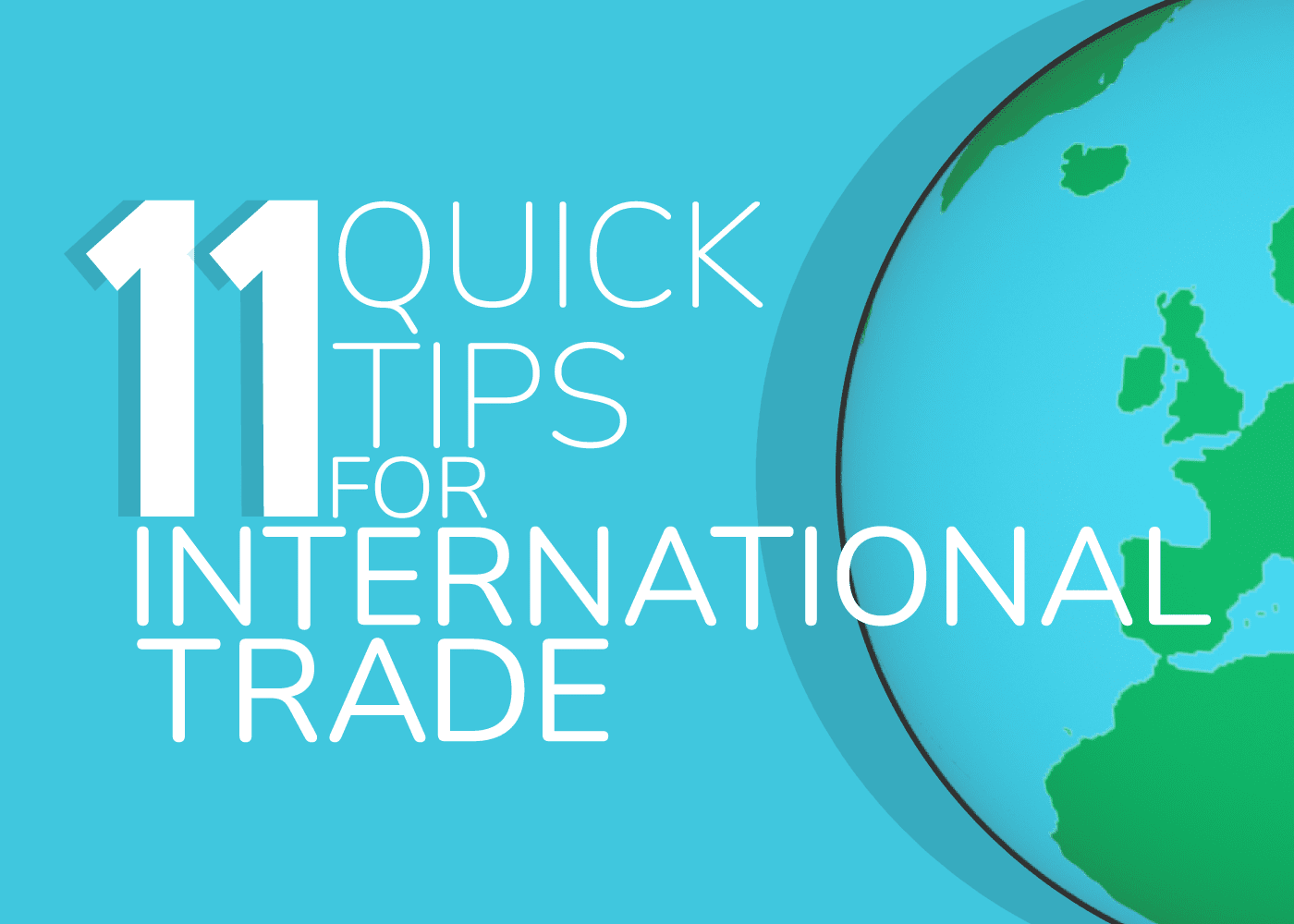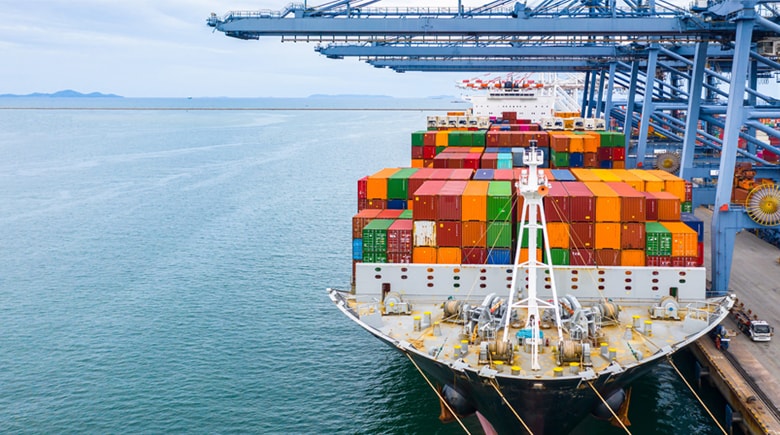Global Trade Tips: Strategies for Success in International Markets
Global trade has become the backbone of the modern economy, allowing businesses to expand beyond borders and reach new markets. Whether you are a startup or an established company, understanding key global trade strategies can help you maximize profits, minimize risks, and stay ahead of the competition.
In this guide, we will explore essential tips for successful global trade, covering everything from market research to logistics and automation.

1. Understanding Global Trade: Why It Matters
Global trade refers to the exchange of goods, services, and capital across international borders. It plays a crucial role in economic growth, innovation, and business expansion.
Why Businesses Should Consider Global Trade?
-
Access to new markets – Expanding internationally increases customer reach.
-
Diversification – Reduces dependence on a single economy.
-
Competitive advantage – Lower costs and better sourcing opportunities.
However, navigating international trade requires careful planning and strategic decision-making. Let’s dive into essential tips for success.
2. Essential Tips for Successful Global Trade
A. Conduct Thorough Market Research
Before entering a new market, businesses must analyze demand, competition, and regulations.
Key Steps in Market Research:
-
Identify potential markets – Analyze regions with high demand for your product.
-
Study consumer behavior – Understand preferences and purchasing habits.
-
Check legal requirements – Ensure compliance with import/export laws.
By conducting in-depth market research, businesses can avoid risks and develop an effective expansion strategy.

B. Build Strong International Partnerships
Working with local distributors, suppliers, and trade agencies can simplify global trade operations.
Best Practices for Finding Reliable Partners:
-
Use online B2B platforms (Alibaba, Global Sources, etc.).
-
Attend international trade fairs and expos.
-
Join business chambers and trade associations.
A strong network of partners can enhance efficiency, reduce costs, and ensure smooth operations.
C. Understand Import & Export Regulations
Each country has unique trade regulations, tariffs, and compliance requirements.
Key Trade Agreements & Organizations to Consider:
-
World Trade Organization (WTO) – Governs international trade policies.
-
Free Trade Agreements (FTAs) – Reduce tariffs and barriers.
-
Customs & Compliance Laws – Ensure proper documentation for smooth customs clearance.
Failing to comply with these regulations can lead to delays, fines, and legal issues.
D. Optimize Logistics & Supply Chain Management
A well-structured logistics strategy ensures timely delivery and cost savings.
Best Practices for Efficient Logistics:
-
Work with reliable freight forwarders & couriers.
-
Use a mix of air, sea, and land transportation for cost efficiency.
-
Leverage inventory management software for real-time tracking.
For global businesses, automation tools like DUYTHIN.DIGITAL can help streamline operations.

E. Leverage Technology & Automation
Modern businesses must embrace digital transformation to compete globally.
Key Technologies for Global Trade:
-
AI-driven analytics – Helps predict market trends.
-
Blockchain & smart contracts – Improve security and transparency.
-
Automated marketing tools – Enhance global customer engagement.
Using automation solutions like DUYTHIN.DIGITAL can help businesses manage bulk messaging, social media, and customer interactions efficiently.
3. Common Challenges in Global Trade & How to Overcome Them
Despite its benefits, global trade comes with challenges. Here’s how businesses can overcome them:
| Challenge | Solution |
|---|---|
| High shipping costs | Negotiate bulk shipping deals & use efficient routes. |
| Currency fluctuations | Use forex hedging strategies & multi-currency accounts. |
| Trade barriers & tariffs | Explore Free Trade Agreements & work with trade experts. |
| Cultural differences | Conduct cultural training & hire local experts. |
By addressing these challenges proactively, businesses can minimize risks and maximize profits.

4. How to Scale Your Business Globally
For businesses ready to expand internationally, here’s a step-by-step approach:
Step 1: Identify Key Markets
-
Research high-growth markets for your industry.
-
Analyze economic trends and consumer demand.
Step 2: Establish a Global Sales Strategy
-
Develop localized marketing campaigns.
-
Use SEO & digital advertising for visibility.
Step 3: Secure Reliable Payment & Shipping Solutions
-
Offer secure international payment options (PayPal, Stripe, Wise).
-
Optimize supply chain and delivery logistics.
Step 4: Automate & Optimize Operations
-
Leverage AI and automation tools.
-
Utilize cloud-based platforms for global collaboration.
With the right strategy and technology, businesses can scale efficiently in international markets.
FAQs About Global Trade
Q: What is the biggest challenge in global trade?
A: Compliance with international regulations and managing logistics efficiently are some of the biggest challenges. Businesses must ensure they meet customs and trade laws to avoid delays.
Q: How can small businesses start trading internationally?
A: Start with e-commerce platforms like Amazon, Alibaba, or Shopify. Also, use automation tools like DUYTHIN.DIGITAL for seamless marketing and customer engagement.
Q: What are the best global payment solutions?
A: PayPal, Wise, Stripe, and cryptocurrency payments are popular options for international transactions.
Q: How can I ensure my business complies with trade regulations?
A: Work with customs brokers, legal experts, and trade consultants to stay updated on import/export laws.
Conclusion
Expanding into global markets can be highly profitable, but it requires strategic planning, strong partnerships, and the right technology. Businesses that leverage automation, research, and compliance strategies can thrive in international trade.
For businesses looking to automate social media, SEO, and marketing, explore DUYTHIN.DIGITAL for advanced automation tools that support global expansion.